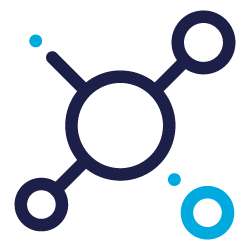

IHAs: It's not just about money and speed
The dramatic growth of in-house agencies has been driven by the desire both to save money on agency costs and get the work out more quickly. About that there’s no doubt.
But it’s increasingly obvious that regaining control over both marketing communications and marketing operations, and having a dedicated resource are equally strong motivations. Marketing is the toughest game it has ever been. The digital disruption brought about by the FAANGS has changed things for brand owners – probably forever. And that was before we got to Covid-19.
It is increasingly difficult for both brand owners and retailers to compete in a world dominated by Amazon Prime. Google packs more influence over consumer choice into its search engine than all the agencies in the world. The effectiveness of the interruption model in conventional media is severely limited by the power and influence of social media.
So little wonder that marketers have turned to in-housing as a way to fight back and regain control of the customer journey. And we are not just talking about marketing communications here. There’s a vast armoury of technology-driven weaponry available in the world of marketing and creative operations: Martech, DAM etc, and then there is data and analytics. One of the major attractions of having a dedicated in-house agency (IHA) is that you can fold in the ops with the comms.
Fortunately we have plenty of reports and surveys to help us understand why companies have gone down the IHA road, and what benefits they feel they derive from it. The Digiday survey of clients, agencies and consultants across Europe last year found the following:
- 63% said creativity had increased
- 58% said there was a measurable ROI from in-housing
- 41% said their use of data had improved
- 39% claimed increased transparency
- 38% talked about greater agility
- 37% pointed to quicker reaction to marketing trends
But it’s ironic that almost nowhere in the forest of data about IHAs do you find an underlining of their greatest strength (which comes with the water), alongside the greatest weakness of external agencies (which is not their fault).
Most of us grew up in a world where agencies had lots of clients, and agencies had lost of agencies. That was all fine as long as clients didn’t require dedication in the face of massive competitive threat and the side effects of a pandemic. Sadly for external agencies, their syndicated model means that they simply cannot offer dedication and exclusivity. Happily for IHAs they can.
The details on the course are here, and you can read all the associated information from ICP here.
By David Wethey, Associate Consultant to ICP

.png?length=800&name=Untitled-4-CrOps%20Maturity%20Assessment%20landing%20page%20graphic%20(1).png)


%E2%80%8B-%E2%80%8B%20%E2%80%8B.png?length=256&name=Purple%20B__Align%20(Content%20Alignment)%E2%80%8B-%E2%80%8B%20%E2%80%8B.png)
%E2%80%8B-%E2%80%8B%20%E2%80%8B-1.png?length=256&name=__Align%20(Content%20Alignment)%E2%80%8B-%E2%80%8B%20%E2%80%8B-1.png)
%E2%80%8B%20%E2%80%8B.png?length=256&name=Blue%20B__Implement-%20(Technology%20Implementation)%E2%80%8B%20%E2%80%8B.png)
%E2%80%8B%20%E2%80%8B.png?length=256&name=__Implement-%20(Technology%20Implementation)%E2%80%8B%20%E2%80%8B.png)
%E2%80%8B.png?length=256&name=Blue%20B__Adopt-%20(Technology%20Adoption)%E2%80%8B.png)
%E2%80%8B.png?length=256&name=__Adopt-%20(Technology%20Adoption)%E2%80%8B.png)





%E2%80%8B-%E2%80%8B%20%E2%80%8B.png?length=256&name=__Align%20(Content%20Alignment)%E2%80%8B-%E2%80%8B%20%E2%80%8B.png)





%E2%80%8B-%E2%80%8B%20%E2%80%8B.png?length=256&name=Blue%20B__Align%20(Content%20Alignment)%E2%80%8B-%E2%80%8B%20%E2%80%8B.png)
%E2%80%8B%20%E2%80%8B.png?length=256&name=Cyan%20B__Implement-%20(Technology%20Implementation)%E2%80%8B%20%E2%80%8B.png)
.png?length=256&name=Blue%20B__Activate%20(Content%20Activation).png)
.png?length=256&name=__Activate%20(Content%20Activation).png)

.png?length=256&name=Data_%20Outcome_White%20BG%20(1).png)










